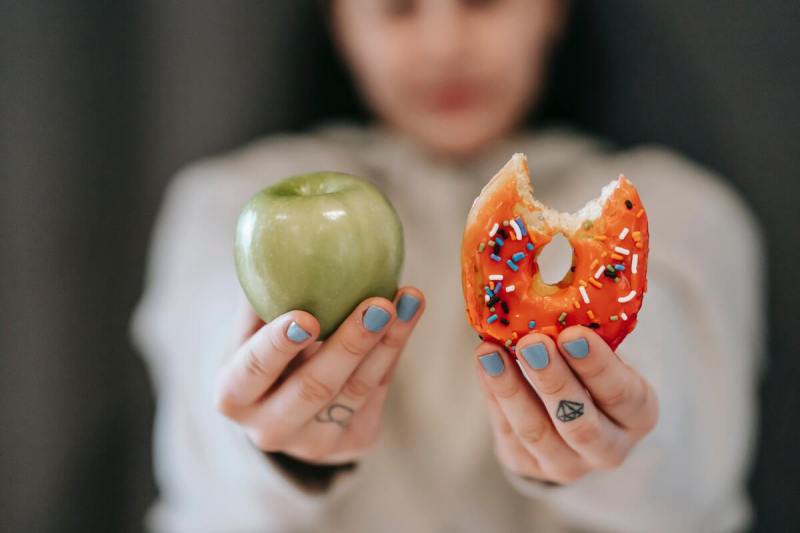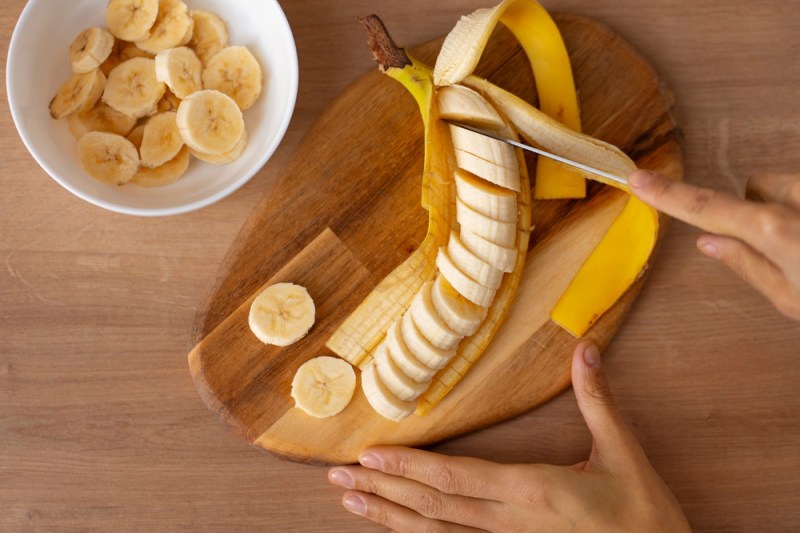Sugar is famously terrible for your health. It’s addictive and increases your risk of obesity, diabetes, and heart disease. So why not just … stop eating it? Unfortunately, it’s not that easy for most of us.
Still, a completely sugar-free diet can help you beat sugar cravings, lose weight, and improve your health. In this article, we’ll give you five tips for cutting out sugar, plus we’ll take a look at the benefits and downsides and what you need to know for the best chance at success.
What is a sugar-free diet?

A sugar-free diet means, pretty simply, eating no sugar. This might not be quite as easy as it sounds, though. Sugar-free diets usually allow fruit, but any added sugar in anything should be avoided, and sugar can be found hidden in a wide variety of unexpected sources. For example, you can find added sugar in ketchup and other sauces, most fruit juices, bread, and peanut butter. A sugar-free diet requires you to be vigilant about a lot of foods you take for granted.
What are the benefits of following a sugar-free diet?

Weight loss
Eating too much sugar often leads to weight gain. Sugar and sugary foods are high in calories, so you may take in more calories than you burn, which leads to weight gain. When you cut out sugar, it’s easier to follow the idea of calories in, calories out, which says that you should eat fewer calories than you use.
Sugar also creates cravings for more sugar and more food. Eating less sugar means fewer food cravings, which means an easier time managing your weight.
Reduced inflammation
Sugar can also lead to inflammation. Studies have found inflammatory effects caused by increased intakes of a variety of sugars. It doesn’t seem to matter what type of sugar is eaten; anything from regular table sugar (sucrose) to high-fructose corn syrup has the same inflammatory effect. Cutting out sugar removes the cause of this inflammation.
Lessened risk of disease
One of the main problems caused by eating a lot of sugar is that it creates a spike in blood sugar. All food does to some extent, but sugar creates a much sharper and steeper spike. This requires the body to produce insulin to balance it out, which can, over time, lead to diabetes. Sugar intake is also a risk factor for heart disease, partly because it’s linked to obesity.
Tips for transitioning to sugar-free

Know all the names for sugar
Sugar can be found on nutrition labels under many different names. One popular list of names found on nutrition labels says there are over 60, but some of those include natural sugar sources like “fruit juice” and “honey,” which may not be worrying to you. Do keep an eye out for these common names: corn syrup, rice syrup, sucrose, maltodextrin, glucose, saccharose, and dextrin.
Start gradually
You don’t have to jump immediately into reading every label and hunting down every last gram of sugar in your diet. Avoiding the obvious sources, like sugary drinks and desserts, can be a good first step. Then, you can transition to removing not-as-obvious and less concentrated sources, like sauces and bread.
Keep healthy snacks around
If you’re in the habit of picking up sugary snacks, make sure to have snacks available to handle your cravings. Sweet foods like fruit are the best replacements, but you can also replace your usual snacks with something salty, like pretzels or nuts.
Manage your cravings
Sugar is highly addictive and will create a lot of cravings, especially when you first cut it out. This is part of why you should aim for a gradual decline rather than quitting all at once; it will make the cravings more manageable. Just the awareness that cravings will happen can help you be prepared to resist them; you can also stock up on sweet fruits or honey to help you manage the cravings and make the transition easier.
Find replacements for your favorite foods
If you have regular habits, like picking up a coffee every day, it’s easier to find a way to redirect that habit than to give it up entirely. This is similar to the earlier point about having healthy snacks to replace your snack habit, but you can find replacements for other habits, too, like sugar-free Starbucks drinks and smarter choices for eating out.
Who is a sugar-free diet best for?

A sugar-free diet will be helpful for people who struggle with sugar cravings and want to change their habits. It may be useful for people with diabetes as well; going sugar-free is not necessary if you have diabetes, but it can help. For average people who eat reasonable amounts of sugar on occasion, going entirely sugar-free is probably not necessary.
Are there any downsides to cutting out sugar?

Refined, added sugar has no health benefits. If you attempt to replace sugar with artificial sugar substitutes and live your life exactly the same, you may be at higher risk of side effects caused by artificial substitutes; studies as to how they affect health are still ongoing. However, if you replace sugary foods with healthier meals and snacks and the occasional artificially sweetened treat, there won’t be any side effects.
Instead, the main downside of eating absolutely no sugar is that it’s very difficult when you’re following a sugar-free diet too strictly. Going out to eat becomes difficult because most sauces contain sugar, and so do all kinds of bread, from pizza crusts to burger buns. It might be easier to follow a plan like the Mediterranean diet, which recommends eating sugar very sparingly, but not never — and it’s generally considered the best diet by most experts.
Frequently asked questions

What happens after seven days without sugar?
After about a week, the intense cravings for sugar usually start to subside. You might begin feeling more energy and peace of mind.
Can I eat bread on a no-sugar diet?
You might have to be careful with bread since highly processed bread and white bread often contain sugar. Read ingredient labels carefully, and look for whole-wheat and organic types of bread, which are more likely to be sugar-free.
Can you eat bananas on a no-sugar diet?
Bananas technically contain sugar, but most sugar-free diets are only worried about artificially added sugar. Natural sugars found in fruit are fine, so you can eat bananas — and oranges and apples and watermelon and any other kind of fruit — on a no-sugar diet.




